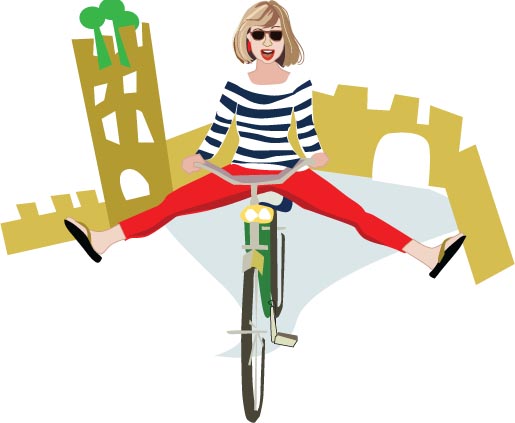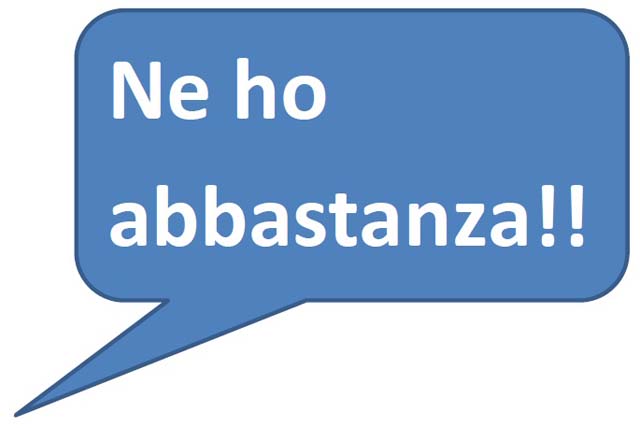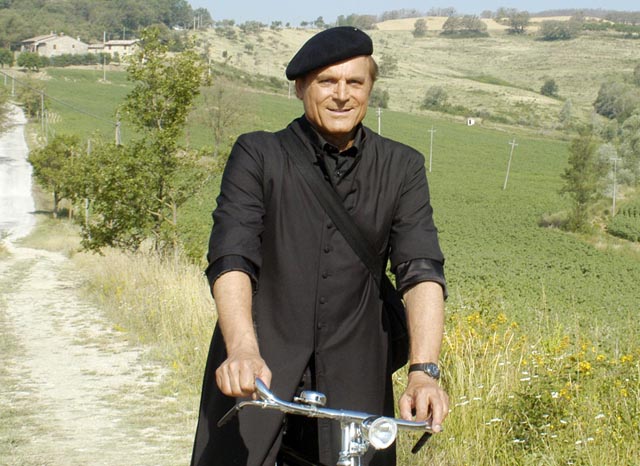
È una nuova settimana e vorrei vorrei dare un’occhiata alla grammatica. Ogni settimana parlo con gli studenti attraverso il mio incentivo “Chat Italiano” che offro qui (click Link per sapere di piu`). Recentemente Carol in Inghilterra ha voluto dare un’occhiata al passato prossimo. Quindi ecco una breve spiegazione come to formulare il passato prossimo usando “Avere” e “Essere.” Alla fine ci sono gli esercizi per fare la pratica.
It’s a new week and time for a quick look at some little Italian grammar. Every week I talk with students through my “Italian Chat” incentive that I offer on this site (click the link to learn more). Recently Carol in England wanted to take a closer look at how to form the past tense in Italian. So, here is a brief explanation of the Italian past tense and how to form it using “Avere” e “Essere.” At the end, there are exercises for practice.

Passato Prossimo
of Transitive and
Intransitive Verbs
The passato prossimo is a past tense used to express an action that was recently completed. It corresponds to the English simple past, emphatic past, and present perfect.
The past participle of -are, -ere, and -ire verbs is formed by adding the endings -ato, -uto-, and -ito, respectively, to the stems of the infitive.
Pagare / pag ato / paid
Potere / pot uto / been able
Finire / fin ito / finished
Some verbs, however, have an irregular
past participle. Here a few:
Aprire / aperto / opened
Bere / bevuto / drunk
Dire / detto / said, told
Chiudere / chiuso / closed
Conoscere / conosciuto / known
Essere / stato / been
Fare / fatto / done, made
Leggere / letto / read
Mettere / messo / put, placed
Io ho studiato la lezione. / I studied the lesson.
Note that while English uses only have to form the present perfect tense of both transitive and intransitive verbs, in the formation of the passato prossimo Italian uses “avere” and “essere.”

The passato prossimo of transitive verbs is formed with the present indicative of “avere”
plus the past participle of the verb:
Examples
Imparare (to learn)
Io ho imparato
Tu hai imparato
Lui, Lei, Lei ha imparato
Noi abbiamo imparato
Voi avete imparato
Loro hanno imparato
Mettere (to put or place)
Ho messo
Hai messo
Ha messo
Abbiamo messo
Avete messo
Hanno messo
Spedire (To send)
Ho spedito
Hai spedito
Ha spedito
Abbiamo spedito
Avete spedito
Hanno spedito
Ieri sera abbiamo mangiato fuori.
Chi ha spiegato la lezione?
Cosa avete detto Rosa.

The Passato Prossimo of most intransitive verbs is formed with the present indicative of “essere” plus the past participle of the verb. The past participle must agree in gender and number
with the subject of the verb.
Examples of intransitive verbs that take essere:
Le amiche sono andate a Pisa
Maria è nata a Toronto
Quei piloti sono partiti ieri
Ieri lei è passata da casa mia
Io sono andata/o
Tu sei andata/o
Lui, lei, Lei è andata/o
Noi siamo andate/i
Voi siete andate/i
Loro sono andate/i
Sono nata/o
Sei nata/o
È nata/o
Siamo nate/i
Siete nate/i
Sono nate/i
Sono partita/o
Sei partita/o
È partita/o
Siamo partite/i
Siete partite/i
Sono partite/i

Exercises:
Change the infinitives below to the proper form of the passato prossimo, with the subjects given in parentheses.
Dovere (io, voi, loro)
Guardare (tu, Lei, noi)
Preferire (lei, noi, voi)
Mettere (io, lui e lei, voi)
Sentire (tu, Marco, io e loro)
Entrare (Lei, lui, gli amici)
Firmare (Loro, io, voi)
Stare (la mamma, lui, le ragazze)
Avere (io, Lei, Loro
Festeggiare (io, Loro, lui)
Change the verbs in the following sentences according to the expressions of time given in the parenthesis.
Stamattina noi Andiamo in Via Bellini. (ieri) _________________
Chi fa la spesa oggi? ( La settimana scorsa) _________________
Maria torna a casa adesso. (Tre ore fa) _________________
Paghiamo il conto questo pomeriggio. (Lunedì scorso) _________________
Voi prendete l’autobus domani. (Ieri mattina) _________________
Il pianista oggi è a Roma. (Un mese fa) _________________
Tu devi finire la lezione stasera. (Ieri sera) _________________
Lei adesso offere un caffè a Paolo (Domenica scorsa) _________________
Change the verbs in parentheses to the proper forms of the passato prossimo.
Ieri sera Caterina (rimanere) in città e (vedere) un bel film.
Quando il babbo (entrare) in casa, (chiudere) subito la porta.
Al ristorante noi (mangiare) una bistecca e (bere) del vino.
Il professore (arrivare) in classe e (spiegare) un’altra lezione.
Quando Gino (tornare) da Roma, lui (incontrare) la moglie alla stazione.
Mio fratello (potere) comprare una nuova moto perché l’anno scorso (lavorare)
Il macellaio (vendere) molti chili di carne e così (incassare) molto denaro.
Quando lor (capire) la mia domanda, (rispondere) subito.
L’autista (passare) dal bar e (prendere) un cappuccino e una pasta.
Ieri gli student non (avere) lezione e per questo (rimanere) a casa.
Bene! Avete capito! Tutto va liscio come l’olio?
Adesso potete parlare delle cose che hanno successo nel passato!
È bello ricordare le cose e sognare del future… ma molto meglio vivere nel presente!
If you would like to schedule an Italian chat with me hop on over to my calendar and select a spot that is convenient for you.












Grazie per la tua aiuta con la lingua italiana. Per favore quando dai I esercizi anche dai le riposte. Ho bisogna di le riposte! Grazie mille!
Ciao Lisa, Domani metterò le risposte nel comment box.
Risposte:
Dovere (io, voi, loro) – ho dovuto, avete dovuto, hanno dovuto
Guardare (tu, Lei, noi) – hai guardato, ha guardato, abbiamo guardato
Preferire (lei, noi, voi) – ha preferito, abbiamo preferito, avete preferito
Mettere (io, lui e lei, voi) – ho messo, hanno messo, avete messo
Sentire (tu, Marco, io e loro) – hai sentito, ha sentito, abbiamo sentito
Entrare (Lei, lui, gli amici) – è entrato, è entrato, sono entrati
Firmare (Loro, io, voi) – hanno firmato, ho firmato, avete firmato
Stare (la mamma, lui, le ragazze) – è stata, è stato, sono state
Avere (io, Lei, Loro – ho avuto, ha avuto, hanno avuto
Festeggiare (io, Loro, lui) – ho festeggiato, hanno festeggiato, ha festeggiato
Stamattina noi Andiamo in Via Bellini. (ieri) _________________ siamo andati
Chi fa la spesa oggi? ( La settimana scorsa) _________________ ha fatto
Maria torna a casa adesso. (Tre ore fa) _________________ è tornata
Paghiamo il conto questo pomeriggio. (Lunedì scorso) _________________ abbiamo pagato
Voi prendete l’autobus domani. (Ieri mattina) _________________ avete preso
Il pianista oggi è a Roma. (Un mese fa) _________________ è stato
Tu devi finire la lezione stasera. (Ieri sera) _________________ ha dovuto
Lei adesso offere un caffè a Paolo (Domenica scorsa) _________________ ha offerto
Ieri sera Caterina (rimanere) in città e (vedere) un bel film. (è rimasta… ha veduto/visto)
Quando il babbo (entrare) in casa, (chiudere) subito la porta. (è entrato… ha chiuso)
Al ristorante noi (mangiare) una bistecca e (bere) del vino. (abbiamo mangiato… abbiamo bevuto)
Il professore (arrivare) in classe e (spiegare) un’altra lezione. (è arrivato… ha spiegato)
Quando Gino (tornare) da Roma, lui (incontrare) la moglie alla stazione. (è tornato… ha incontrato)
Mio fratello (potere) comprare una nuova moto perché l’anno scorso (lavorare. (ha potuto… ha lavorato)
Il macellaio (vendere) molti chili di carne e così (incassare) molto denaro. (ha venduto… ha incassato)
Quando loro (capire) la mia domanda, (rispondere) subito. (hanno capito… hanno risposto)
L’autista (passare) dal bar e (prendere) un cappuccino e una pasta. (è passato… ha preso)
Ieri gli student non (avere) lezione e per questo (rimanere) a casa. (hanno avuto… sono rimasti)